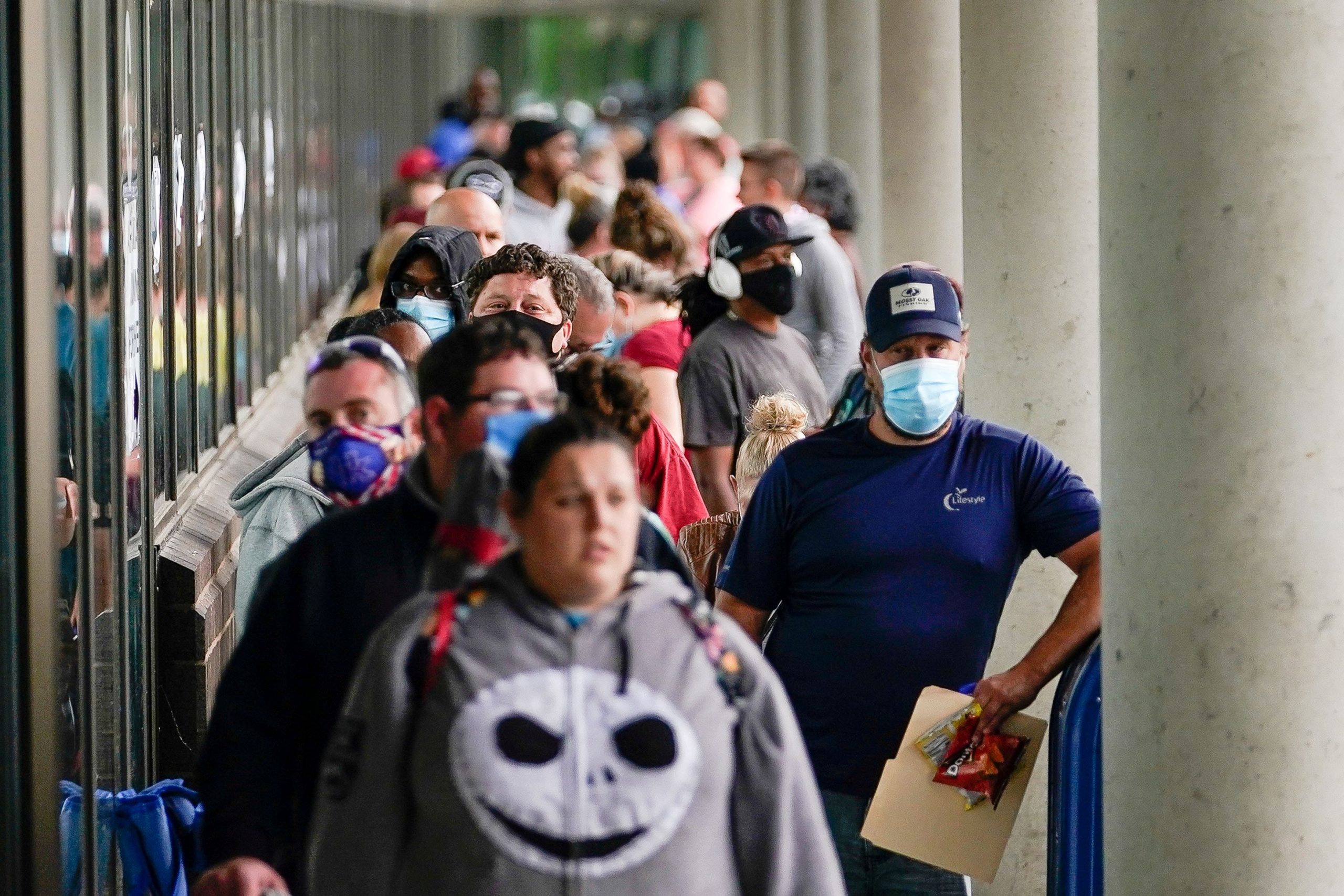New applications for U.S. jobless benefits fell last week, but a record 32.9 million Americans were collecting unemployment checks in the third week of June, suggesting the labor market was struggling to claw out of the COVID-19 pandemic slump.
Economists cautioned against reading too much into the drop in weekly jobless claims reported by the Labor Department on Thursday, noting that the period included the July 4 Independence Day. Claims data are volatile around holidays.
Large parts of the country, including densely populated states like Florida, Texas and California, are dealing with record spikes of new COVID-19 cases, which have forced a scaling back or pausing of reopenings and sent some workers home again.
“Jobless claims may have been held down due to the holiday, but don’t be fooled, the economy’s troubles aren’t over yet, not by a long shot,” said Chris Rupkey, chief economist at MUFG in New York. “The total number out of work and receiving benefits is the worst yet in this recession.”
Initial claims for state unemployment benefits dropped 99,000 to a seasonally adjusted 1.314 million for the week ended July 4. That was the 14th straight weekly decline.
Economists polled by Reuters had forecast 1.375 million applications in the latest week. Claims peaked at a historic 6.867 million in late March. They have been gradually falling, though they remain roughly double their highest point during the 2007-09 Great Recession. Including a program funded by the government, 2.3 million people filed claims last week.
U.S. stock index futures edged higher. The dollar was steady against a basket of currencies. U.S. Treasury prices rose.
RISING CORONAVIRUS CASES
The number of people receiving benefits after an initial week of aid dipped 698,000 to 18.062 million in the week ending June 27. These so-called continued claims, which are reported with a one-week lag, topped out at a record 24.912 million in early May.
There were 32.9 million people receiving unemployment checks under all programs in the third week of June, up 1.411 million from the middle of the month. The report, the most timely data on the economy’s health, could set the labor market for a pullback in employment growth in July.
The government reported last week that 4.8 million jobs were created in June, the most since record-keeping started in 1939. Companies are rehiring workers laid off when establishments like restaurants, bars, gyms and dental offices were closed in mid-March to slow the spread of the respiratory illness.
But the reopening of businesses has led to a resurgence of coronavirus infections, concentrated in the South and West regions. With the economy having slipped into recession in February even before the shutdowns, some businesses are struggling with weak demand, exacerbating the second wave of layoffs. From retailers to airlines, companies have announced job cuts and furloughs.
In addition, the boost from the government’s Paycheck Protection Program, providing businesses loans that can be partially forgiven if used for wages, is fading.
A survey from the NFIB last week showed some small business owners were cutting payrolls, noting “many owners received their loans in April and will be unable to keep all their workers past June.” The government has extended the deadline to August 8 for small businesses to apply for loans.
(Reporting by Lucia Mutikani; Editing by Chizu Nomiyama and Andrea Ricci)

























 Continue with Google
Continue with Google